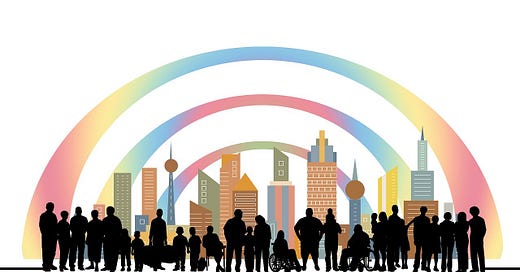In the dynamic and complex realm of Jewish organizations, leadership holds the power to influence not only resource allocation but also the embodiment of values such as inclusion, belonging, and collective responsibility. Many Jewish organizations have begun to prioritize Diversity, Equity, and Inclusion (DEI) as core tenets of their mission and operations. However, these organizations often overlook individuals with disabilities in the DEI conversation, limiting their full participation and representation across all spheres of organizational leadership.
Disability is the only demographic that anyone can join at any time. Yet, the stigma and structural barriers faced by disabled people remain some of the most persistent and unaddressed forms of discrimination. According to the World Health Organization, over 1 billion people—approximately 15% of the global population—experience some form of disability. In the U.S. alone, the CDC reports that 1 in 4 adults live with a disability. Despite these figures, disabled people remain significantly underrepresented in leadership roles and within the frameworks of many DEI initiatives.
Jewish organizations are uniquely situated to exemplify the values of tikkun olam—repairing the world. To fulfill this mission, their leadership must mirror the diversity within the communities they serve, embracing differences in race, gender, sexual orientation, and disability. This inclusivity is not only reflective of Jewish values but is also essential for the strength and success of these organizations.
When leadership draws on a wide array of lived experiences, organizations gain enriched perspectives, foster innovation, and deepen their connections with the broader Jewish community. Inclusive leadership builds trust and engagement, sending a clear message to all stakeholders: the inherent worth and dignity of every individual is both valued and essential to the collective whole.
Disability inclusion remains a pivotal yet often overlooked aspect of DEI efforts. Members of the Jewish community with disabilities frequently encounter systemic barriers to leadership opportunities, resulting from a broader societal tendency to view disability through a lens of charity and chesed or deficit rather than as a source of strength and innovation. By addressing these challenges head-on, Jewish organizations can become exemplars of equity and inclusion, creating spaces where every voice matters.
Importantly, the voices of disabled individuals with lived experience must be central to these efforts. While agencies that serve individuals with disabilities play an important role, they cannot substitute for the firsthand insights and leadership of people who navigate the world with disabilities. The inclusion of individuals with lived experience enriches understanding, challenges assumptions, and ensures that policies, practices, and priorities authentically reflect the needs and aspirations of the community.
We need to intentionally recruit leaders with disabilities to participate in decision-making and governance structures. Implementing DEI initiatives, including disability inclusion, requires addressing unconscious biases, perceived resource constraints, and resistance to change. However, by anchoring these efforts in Jewish values and making them a strategic priority, organizations can surmount these challenges. Collaboration with groups focused on Jewish diversity and disability advocacy offers access to expertise, mentorship, and resources that can amplify impact.
However, these collaborations must also evolve. Jewish organizations should actively partner with individuals who have lived experience of disability, empowering them to lead, rather than solely relying on the perspectives of organizations that serve this community. This shift from representation for to representation by ensures authentic inclusion and real change.
Disabled leaders bring lived experiences and insights that can reshape organizational culture in transformative ways. They are natural problem-solvers, often adept at navigating and dismantling barriers, adapting to challenges, and fostering empathetic, inclusive environments. These qualities are essential for leadership in today’s rapidly evolving world.
Diversity and inclusion are not merely aspirational values; they are strategic imperatives for the sustainability and effectiveness of Jewish organizations. By fully integrating disability into the DEI framework, Jewish organizations can embody the principle of klal Yisrael—the unity of the Jewish people—ensuring that their leadership reflects the breadth and depth of the community.
It is through these intentional efforts, which embrace every member of the community, that Jewish organizations can fulfill their highest purpose: advancing a collective mission of creating a more inclusive, just, and vibrant world.
The words of Tehillim (Psalms) guide us: “Hinei ma tov u’manayim, shevet achim gam yachad”—"Behold, how good and pleasant it is when brothers and sisters dwell together in unity." Let these words serve as both inspiration and aspiration for Jewish organizations. May they lead with unity, inclusion, and the shared purpose of building a world that truly reflects these enduring values.
Michelle Friedman is the board chair of Keshet in Chicago, a member of Disability Lead, and has been a disability advocate for 40 years. She has written two children’s books and is the author of her blog and is a frequent speaker for elementary and high school-age students.



